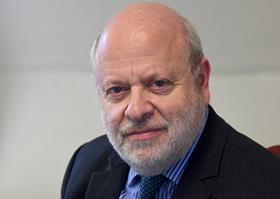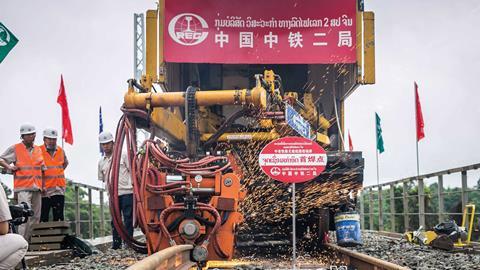There have been fundamental shifts in recent months regarding the international institutions which govern aspects of our lives, as part of the rivalry between major powers. These changes will affect solicitors, remote as they currently seem to our everyday practice.

Last December, the US government deliberately halted the World Trade Organization’s (WTO) ability to issue rulings on major trade disputes by blocking appointments to its Appellate Body, which acts as the supreme court for international trade. There are calls from leaders in both US political parties for complete withdrawal of the US from the WTO, often on the grounds that China is manipulating WTO rules.
Last month, the US administration announced that it was ceasing funding for, and pulling out of membership of, the World Health Organization (WHO), in the middle of the global pandemic. There is some question as to whether the administration can do this without an act of Congress. This move was also often tied to China, on the basis that the WHO had allegedly colluded with China in the opening stages of the virus to suppress news of its spread.
Then, earlier this month (and maybe of most interest to a legal profession devoted to the rule of law) the Trump administration announced sanctions against staff from the International Criminal Court (ICC) who are investigating US troops and intelligence officials, and those of allied nations such as Israel, for possible war crimes in Afghanistan and elsewhere. The sanctions will block the financial assets of court employees, and bar them and their immediate relatives from entering the US. On this occasion, the administration fingered Russia and other adversaries which might be interfering in the investigatory processes.
Staying with the ICC, there was predictable protest from human rights organisations and signatories to the ICC Statute (which does not include the US, which has never signed). The UK government came out in strong support of the ICC, and added: ‘ICC officials should be able to carry out their work independently and impartially, and without fear of sanction.’
'The time may soon come when UK law firms will face serious reputational risk for facilitating the new Chinese empire-building through its Belt and Road Initiative, from which our law firms now benefit hugely'
The American Bar Association issued a statement, calling on its government to refrain from attacks on the ICC and its personnel, and to respect its independence. It also renewed its longstanding call that the US conduct its own investigation and prosecution of any atrocity crimes committed by US officials and personnel.
It may be that these tectonic shifts will cease, and the displacements caused by them will be reversed, after this year’s US election. But it seems unlikely we will return to where we were; because no US president can be inactive in the face of the rise of China and the provocations of Russia.
Despite the insignificance of our profession compared to the global scale of the upheavals, there are potential consequences for us of which we should be aware.
If the US continues to challenge international court staff carrying out their duties, this poses a challenge to a profession based on the rule of law. We are obliged to stand in support of our core values, including the independence of the courts. Sanctions against international court officials for carrying out their allotted duties undermine those values. We cannot stand idle if we are to remain true to who we are.
Given the long-term power-play between the west and China, the time may soon come when UK law firms will face serious reputational risk for facilitating the new Chinese empire-building through its Belt and Road Initiative, from which our law firms now benefit hugely. We have seen firms face new accountability from activists and decision-makers for their enabling roles in tax avoidance and climate change, for instance. If the schism between us and China continues – see the Huawei saga as an example – then law firms may be confronted with difficult decisions. (This is in almost direct opposition to the point made above about core values, since everyone has a right to representation, but the pressure may grow to allow China to be represented elsewhere.)
As we are about to embark on our new role as ‘Global Britain’, away from the umbrella of the EU’s single market, a greater paralysis of the WTO, or indeed its abolition, is not in the UK’s commercial interests. Solicitors are great international traders in services, and one of the jewels in our crown is the contribution of City law firms to the economy. A reversion to pre-WTO days would see the UK having to make difficult decisions between power blocs, and the now relatively open world would doubtless change to one where there are more barriers against the ability of our firms to cross borders.
We can do nothing about these trends, but we can monitor them and prepare ourselves accordingly.
Jonathan Goldsmith is Law Society Council member for EU matters and a former secretary general of the Council of Bars and Law Societies of Europe. All views expressed are personal and do not necessarily reflect the views of the Law Society Council
































1 Reader's comment